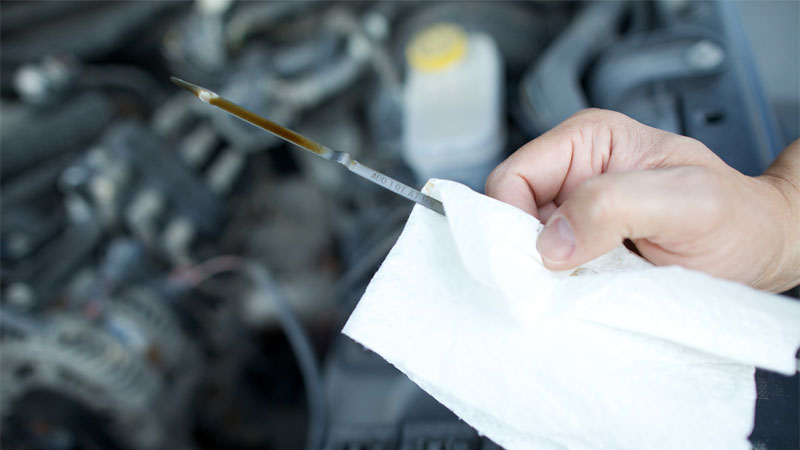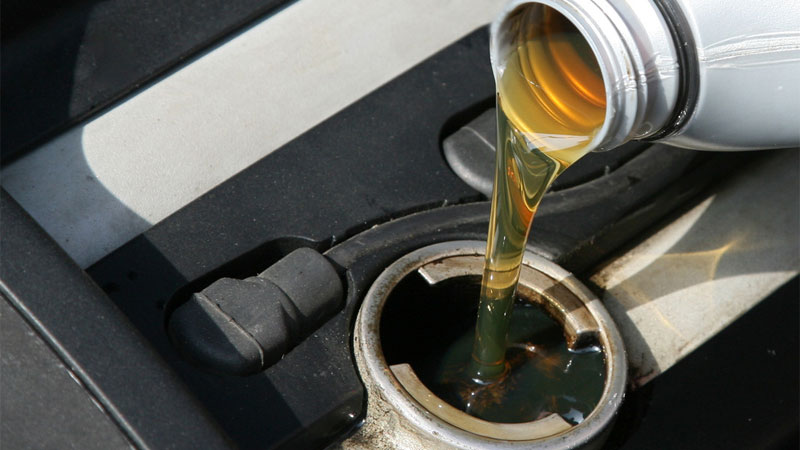There is little as alarming to the average motorist, as coming to the realization that their vehicle has begun making an odd noise. This is especially concerning if the source of this new noise is not easily distinguished. One cannot help but feel as if their vehicle is falling apart in rapid succession, with little potential recourse.
One such noise that often causes a significant degree of alarm is that which is best described as a “ticking” of sorts. Noises of this type are generally traced back to a vehicle’s engine bay, where they can be heard, to a varying degree of intensity.
Many describe this particular engine noise as lifter tick, due to an engine’s lifters being one possible source of its origins. Noises of this type tend to be most prominent when accelerating, or at start-up when an engine is still cold.
Read on to learn more about the potential causes behind an engine that “ticks” when in operation, as well as how to address such issues, should they arise in the future.
See Also – Noise When Turning the Steering Wheel? (7 Causes)
Is It Bad if My Engine Is Ticking?
In most cases, ticking noises emitted from a vehicle’s engine are particularly concerning, because they tend to signify the onset of one or more potential internal engine issues. Ticking can come as the result of a general lack of lubrication or can be a symptom of valve lifter fatigue/failure.
At the very least, the onset of a ticking noise from within your vehicle’s engine compartment warrants further inspection, and careful diagnosis. It is also essential to check your vehicle’s oil level whenever a ticking noise is first overheard, If this inspection reveals a low oil level, discontinue engine operation until additional oil can be added.
Engine Ticking vs Knocking
In the world of concerning engine noises, little is more troubling than a loud metallic knocking sound. Sounds of this type are of even greater concern than the common top-end tick, which is best described as a light tapping or clicking noise.
Under most circumstances, a knocking noise signifies severe internal engine damage of one sort or another. This knocking is typically known by industry professionals as rod or bearing knock and is highly indicative of significant lower-end engine wear, much of which will ultimately necessitate engine overhaul or replacement.
Nonetheless, each of these noises should be taken seriously and should be heeded as a warning of potential issues of heightened severity. In either case, thorough inspection and diagnosis will be required before continuing the operation.
Read Also – 4 Signs of a Broken Engine Mount (and Replacement Cost)
Causes of Engine Ticking

A ticking noise from within an engine can be caused by several different underlying issues. Of these issues, some tend to be far more severe than others, and require more significant repair to rectify.
The following are several of the most common causes of engine ticking.
1. Low Oil Level
One of the first abnormal noises produced by an engine low on oil is often that of a ticking nature. This occurs as an engine’s critical top-end components are starved for vital lubrication.
If oil is not quickly added or a complete oil change done, significant engine damage can occur as a result.
2. Damage or Worn Lifters
Another common source of ticking within an engine is faulty, damaged, or worn valve lifters. These critical components are responsible for ensuring that an engine’s valves open and close as directed by the camshaft.
An engine’s lifters often make a ticking or pinging noise when they begin to fail.
See Also – 7 Signs of a Bad Camshaft Position Sensor
3. Improper Valve Lash
An engine’s valve clearances are intended to be adjusted from time to time, thereby promoting the most efficient operation possible, and preventing valve damage and engine overheating.
The exact interval for such maintenance varies from one model of vehicle to the next.
4. Leaking Exhaust Gasket
Leaking exhaust gaskets are yet another common source of ticking sounds from within a vehicle’s engine bay.
These noises are generated when pressurized combustion gasses are forced beyond perforated segments of gasket material, sandwiched between two sealing surfaces.
5. Spark-Related Issues
In certain instances, problems with one or more of an engine’s spark plugs can be to blame for an obvious ticking noise. This often occurs when a vehicle’s spark plugs have cracked, or been left loose in the cylinder head.
Under such circumstances, white smoke is usually observed coming from a vehicle’s exhaust, due to a lack of ignition.
Read Also – Oil On Your Spark Plugs? (5 Reasons Why)
Will Thicker Oil Stop Engine Ticking?

In the event that one or more of your engine’s lifters are to blame for a constant ticking noise heard during operation, the use of thicker oil can potentially mute this annoyance.
However, this is nothing more than a band-aid solution to a much larger problem, as sooner or later, your engine’s ticking is sure to resume. In many instances, this ticking will even be louder than it was initially.
The use of higher viscosity oil simply masks the fact that an engine’s internal components are not behaving as one would expect, and in many cases, are beginning to exhibit accelerated wear. This simply removes one’s attention from the fact that actual internal repair will be necessary.
Is It Safe To Drive With a Ticking Engine?

If your engine has begun ticking, it is best to avoid further use if at all possible, until the source of such noises can be distinguished. Taking these precautions is essential when attempting to prevent undo engine stress and potential damage.
After all, there is no need to overcomplicate an already concerning the situation.
On the other hand, ignoring lifter noise and acting as if it is not evident can be quite costly in the end. Continued operation of an engine with one or more collapsed lifters can actually cause camshaft damage, which only increases in severity as time continues to pass.
In any event, the root cause of an engine’s ticking noise should be thoroughly diagnosed and repaired as soon as possible. Doing so will prevent further engine damage from being incurred.
If you do not feel comfortable tackling such repairs yourself, you should make an appointment with a trusted automotive service center at the first available opportunity.
- History of the Chevrolet SSR: The Retro-Styled Convertible Pickup - Apr 25, 2024
- The History of the BMW M Coupe (the “Clown Shoe”) - Mar 26, 2024
- The History of the Ford Flex - Feb 28, 2024

